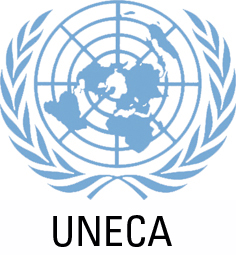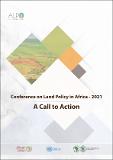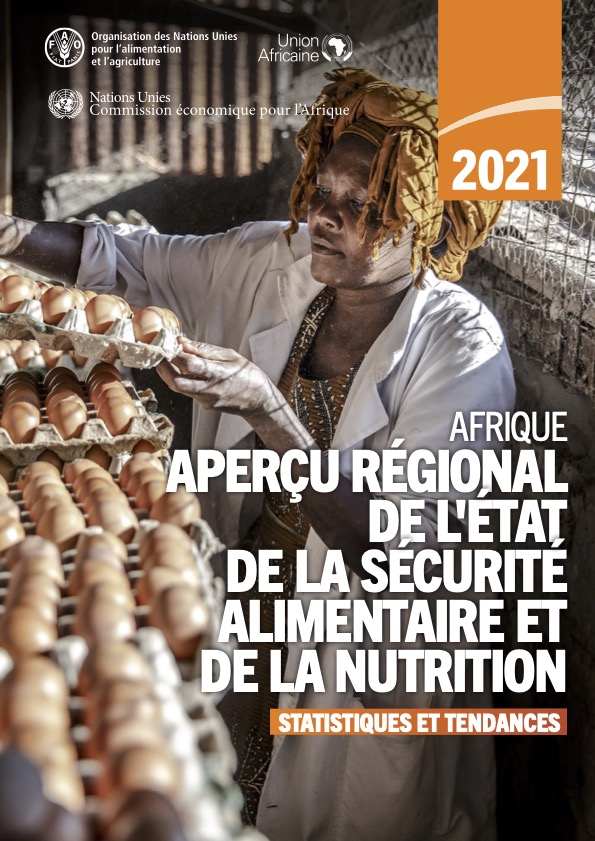Focal point
Location
P.O. Box 3001
Addis Ababa, Ethiopia
Established by the Economic and Social Council (ECOSOC) of the United Nations (UN) in 1958 as one of the UN's five regional commissions, ECA's mandate is to promote the economic and social development of its member States, foster intra-regional integration, and promote international cooperation for Africa's development.
Made up of 54 member States, and playing a dual role as a regional arm of the UN and as a key component of the African institutional landscape, ECA is well positioned to make unique contributions to address the Continent’s development challenges.
ECA’s thematic areas of focus are as follows:
- Macroeconomic Policy
- Regional Integration and Trade
- Social Development
- Natural Resources
- Innovation and Technology
- Gender
- Governance
Members:
Resources
Displaying 6 - 10 of 872Conference on land policy in Africa 2021- A Call to Action
The African Land Policy Centre (ALPC), a joint initiative of the African Union Commission (AUC), the United Nations Economic Commission for Africa (ECA), and the African Development Bank (AfDB) biennially convenes the only African, multi-stakeholder conference on land policy in Africa. The Conference complements existing initiatives such as the annual World Bank Land and Poverty Conference, among others.
Conference on land policy in Africa 2021- A Call to Action
The African Land Policy Centre (ALPC), a joint initiative of the African Union Commission (AUC), the United Nations Economic Commission for Africa (ECA), and the African Development Bank (AfDB) biennially convenes the only African, multi-stakeholder conference on land policy in Africa. The Conference complements existing initiatives such as the annual World Bank Land and Poverty Conference, among others.
Conference on Land Policy in Africa opens with calls for pro-poor land policies;equal access;and ownership
Writers have guest-edited an African Studies Review forum on Understanding Land Deals in Limbo in Africa which examines the contentious politics of incomplete land grabs in Senegal;Tanzania and Zambia. These studies show that even when land deals are cancelled;stalled;downsized;transferred to new owners;or stay dormant and speculative for many years;they can still produce far-reaching consequences that often go unnoticed. The complex interplay of land governance;local political dynamics and capital’s own contradictions can push land deals in different and unexpected directions.
IDEP Policy Brief 008/18 - L’investissement public dans l’agro-industrie réduit-t-il les inégalités de genre au Burkina Faso ? Une analyse en équilibre général calculable, par Dr Patrice Ziouemba.
Au Burkina Faso, le secteur agro-industriel, qui s’occupe essentiellement de la transformation des produits de l’agriculture, de l’élevage et de la pêche, est largement dominé par une main-d’œuvre féminine, contrairement aux autres secteurs de l’économie plutôt intensifs en travail masculin. Dans le Plan National de Développement Economique et Social (PNDES), les autorités entendent accorder plus de soutien à ce secteur en termes d’investissements, afin de lui permettre de se développer et d’assurer un processus de transformation structurelle de l’économie nationale.
Afrique – Aperçu régional de l'état de la sécurité alimentaire et de la nutrition 2021
L'Afrique n'est pas sur la bonne voie pour atteindre les cibles de l'objectif de développement durable (ODD) 2 visant à éliminer la faim et à assurer l'accès de tous à une alimentation saine, nutritive et suffisante tout au long de l'année, et à mettre fin à toutes les formes de malnutrition. Les estimations les plus récentes montrent que 281,6 millions de personnes sur le continent, soit plus d'un cinquième de la population, ont été confrontées à la faim en 2020, soit 46,3 millions de plus qu'en 2019.





